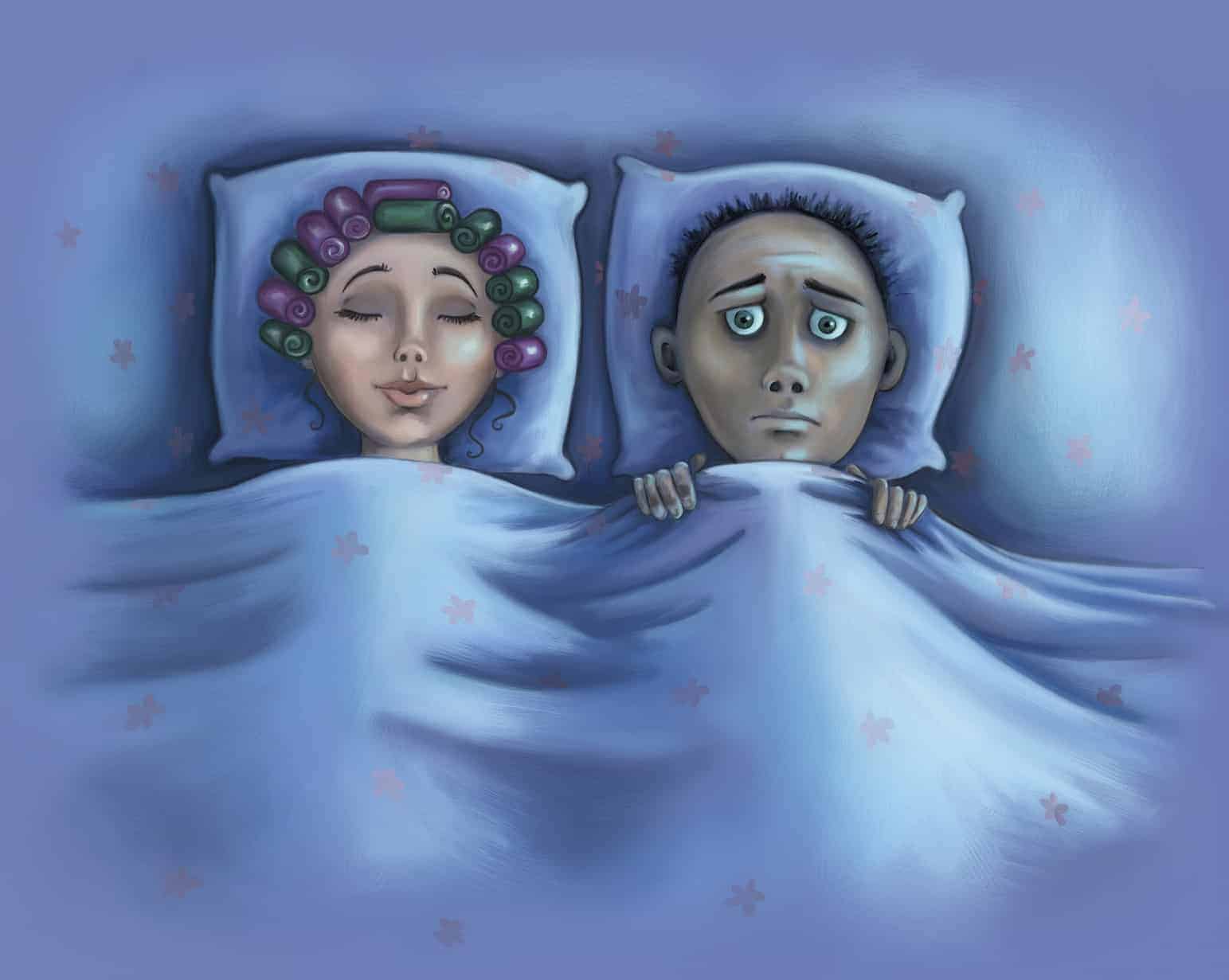Unfortunately in today’s society, many people suffer from sleep deprivation and the health problems associated with this growing epidemic. With one in three Americans beginning their day without getting enough sleep the night before, it comes as no surprise that the health of people today continues to decline.
Very important processes happen during sleep that cannot happen during any other time. Still, it seems that we don’t prioritize sleep as a collective. We put it off by staying on our phones, watching shows on Netflix, and doing anything we can to stave off sleep. Or, we have so much work to do that getting enough sleep seems like an impossible task.
Of course, we can’t always get the recommended amount of zzz’s. So an occasional deviation from this suggestion won’t do much harm to the body. However, continually skimping on it can do some serious damage to our mental and physical health.
A team of Norwegian neuroscientists studied what exactly happens in our brains when we don’t get enough. After observing sleep-deprived groups in a controlled environment, they found that lack of sleep can alter the white matter in our brains, and other studies have found that it can interfere with our genes.
While our bodies can repair the damage from not getting enough sleep, you will not feel at your best if you consistently get less than the recommended amount of shut-eye. Continually operating in a sleep deprived state can cause long-term health problems, such as the six listed below.
Here are 6 health problems that happen when you don’t sleep enough:

1. Cardiovascular Disease
Scientists have found the link between cardiovascular disease and poor sleep long ago, but a recent study presented at EuroHeartCare confirmed these findings more concretely. After observing 657 Russian men between the ages of 25 and 64 for 14 years, researchers discovered that almost two-thirds of the men who had a heart attack suffered from a sleep disorder as well.
Even more alarming, the men that had a sleep disorder also had a 2.6 times higher risk of myocardial infarction, a heart attack that occurs when the heart muscle dies, and a 1.5 to four times greater risk of stroke.
2. Alzheimer’s
Experimental Brain Research published a study showing that a lack of sleep contributed to poor decision-making, diminished reasoning, and problem-solving skills, and slower reaction times when faced with specific tasks.
Also, a 2013 study conducted by researchers at Johns Hopkins University found that a lack of sleep can both cause Alzheimer’s and serve as a catalyst for the disease. The study further backed up previous research that discovered sleep eliminates “cerebral waste,” or the white matter in the brain that can build up and cause dementia.
This study comprised 70 adults ranging between the ages of 53 and 91. Researchers found that the participants who reported getting poor sleep each night had a higher amount of beta-amyloid deposition in their brains on PET scans. This compound is one of the telltale signs of Alzheimer’s.Thus, the findings led the researchers to conclude that sleep deprivation prevents the brain from ridding itself of “cerebral waste.”
3. Obesity/Diabetes
A three-year-long study of over 21,000 adults evaluated the relationship between sleep and weight. It found people who slept on average of fewer than five hours a night were not only more likely to gain weight but were also at risk of becoming obese.
Also, a recent study by the University of Chicago revealed how bad sleep can lead to obesity and diabetes.
Researchers studied 19 men’s sleep patterns and found that those who got only four hours over the course of three nights had elevated levels of fatty acid within their blood between 4 a.m. and 9 a.m. Those who got 8.5 hours per night had a 15 to 30 percent decrease in fatty acids. What’s more, researchers found that the elevated levels of fatty acids caused a higher instance of insulin resistance, which ultimately leads to diabetes. So, those who got longer and deeper sleep did not have the same risk for obesity or diabetes.
4. Suicidal Thoughts
While this is not a disease by any means, it still should be noted as a health risk associated with lack of it. In 2014, a study found a link between increased incidences of suicide in adults and poor sleep, even if they didn’t suffer from depression in the past. A 10-year study conducted by researchers at the Stanford University of Medicine followed 420 participants ranging from mid to late adulthood. Out of this group, twenty participants who had trouble with sleep, unfortunately, committed suicide. As a result, the research team concluded that those with chronic poor sleep had a 1.4% higher chance of committing suicide.
5. Ulcerative Colitis
According to a 2014 study, both too much and too little can cause ulcerative colitis, an inflammatory bowel disease that causes ulcers in the lining of your digestive tract. Researchers from Massachusetts General Hospital found that getting the proper amount of sleep can ward off the inflammation that leads to digestive problems.
After following women enrolled in the Nurses’ Health Study (NHS) I since 1976 and NHS II since 1989, researchers concluded that risks of ulcerative colitis increased when the women got less than six hours of rest per night. Alternately, researchers also found that more than nine hours of sleep increased risks as well, suggesting that a small window exists for warding off inflammation in the gut. Although only adult women were part of the study, the increased chances of developing ulcerative colitis when in a sleep-deprived state existed no matter the age, weight, and lifestyle habits the women had.

6. Cancer
The American Academy of Sleep Medicine released a statement connecting the lack of sleep with higher rates of certain types of cancers. These included breast, prostate, and colorectal cancers. It also showed that people who slept longer than seven hours per night had the lowest mortality rates in the group.
The National Sleep Foundation released a revised sleep recommendation report based on age.
The new recommendations are as follows:
- Older adults, 65+ years: 7-8 hours
- Adults, 26-64 years: 7-9 hours
- Young adults, 18-25 years: 7-9 hours
- Teenagers, 14-17 years: 8-10 hours
- School-age children, 6-13 years: 9-11 hours
- Preschool children, 3-5 years: 10-13 hours
- Toddlers, 1-2 years: 11-14 hours
- Infants, 4-11 months: 12-15 hours
- Newborns, 0-3 months: 14-17 hours
















